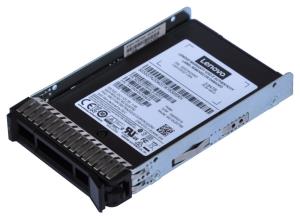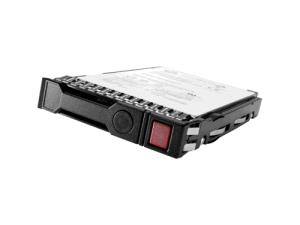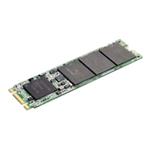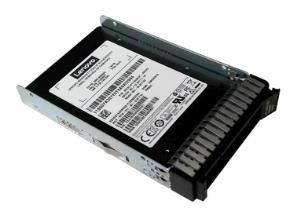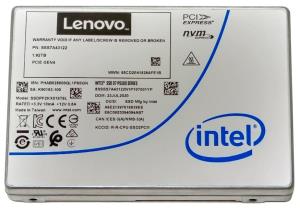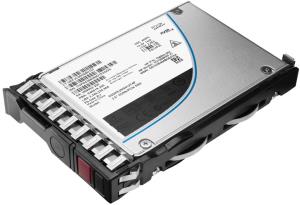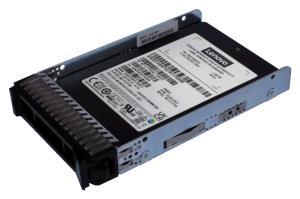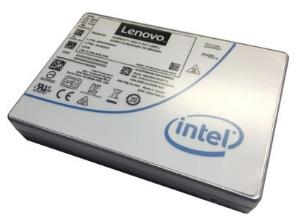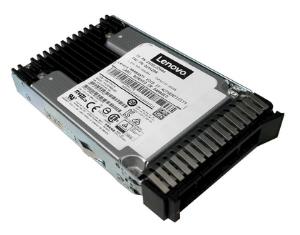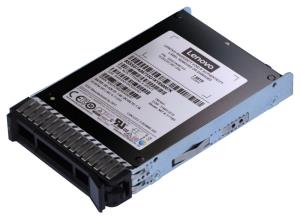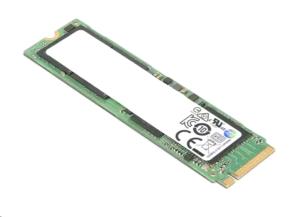SSD PM983 1.92TB U.2 NVMe Pci-e 3.0 x4 ThinkSystem Entry Hot Swap
ITCurry #: M852LZ43 | Article #: 4XB7A10175-
SchermGeheugenGewichtProcessorHard DiskSSDSchermResolutieConnectiviteitGeheugenDesktopOSSchermTypeSnelheid ZwartSnelheid KleurenModelSnelheidVorm factorInterne / ExterneAantal poortenUplink / mediaMontage
- Alles bekijken
Bundles
Verwante producten
Product Informatie
The Lenovo PM983 Entry NVMe PCIe solid-state drives (SSDs) in capacities from 1.92 TB to 7.68 TB are general-purpose yet high-performance NVMe PCIe SSDs. They are engineered for greater performance and endurance in a cost-effective design, and to support a broader set of workloads.
This product guide provides essential presales information to understand the NVMe Enterprise Value PCIe SSD offerings and their key features, specifications, and compatibility. This guide is intended for technical specialists, sales specialists, sales engineers, IT architects, and other IT professionals who want to learn more about the SSDs and consider their use in IT solutions.
The Lenovo PM983 Entry NVMe PCIe solid-state drives (SSDs) in capacities from 1.92 TB to 7.68 TB are general-purpose yet high-performance SSDs for System x and ThinkServer systems. They are engineered for greater performance and endurance in a cost-effective design, and to support a broader set of workloads.
The PM983 family of SSDs are follow-ons to the PM963 drives. The PM983 drives offer improved performance, both in terms of random read/write performance (IOPS) and sequential read/write bandwidth (MB/s). Sequential write latency has also been improved.
Lenovo Entry SSDs are suitable for read-intensive and general-purpose data center workloads, however their NVMe PCIe interface means the drives also offer high performance. Overall, these SSDs provide outstanding IOPS/watt and cost/IOPS for enterprise solutions.
Non-Volatile Memory Express (NVMe) is PCIe 3.0 high performance SSD technology that provides high I/O throughput and low latency. NVMe interfaces remove SAS/SATA bottlenecks and unleash all of the capabilities of contemporary NAND flash memory. Each NVMe PCI SSD has direct PCIe 3.0 x4 connection, which provides at least 2x more bandwidth and 2x less latency than SATA/SAS-based SSD solutions. NVMe drives are also optimized for heavy multi-threaded workloads by using internal parallelism and many other improvements, such as enlarged I/O queues.
Entry SSDs and Performance SSDs have similar read IOPS performance, but the key difference between them is their endurance -- how long they can reliably perform write operations. Entry SSDs have a better cost/IOPS ratio but lower endurance compared to Performance SSDs. SSD write endurance is typically measured by the number of program/erase (P/E) write cycles that the drive incurs over its lifetime, listed as the total bytes of written data (TBW) in the device specification.
The TBW value assigned to a solid-state device is the total bytes of written data (based on the number of P/E cycles) that a drive can be guaranteed to complete (% of remaining P/E cycles = % of remaining TBW). Reaching this limit does not cause the drive to immediately fail. It simply denotes the maximum number of writes that can be guaranteed. A solid-state device will not fail upon reaching the specified TBW. At some point based on manufacturing variance margin, after surpassing the TBW value, the drive will reach the end-of-life point, at which the drive will go into a read-only mode.
Because of such behavior by Entry solid-state drives, careful planning must be done to use them only in read-intensive or mixed up to 70% read/30% write environments to ensure that the TBW of the drive will not be exceeded before the required life expectancy.
For example, the PM983 Entry 3.84 TB drive has an endurance of 5466 TB of total bytes written (TBW). This means that for full operation over five years, write workload must be limited to no more than 2995 GB of writes per day, which is equivalent to 0.8 full drive writes per day (DWPD). For the device to last three years, the drive write workload must be limited to no more than 4992 GB of writes per day, which is equivalent to 1.3 full drive writes per day.
| Kenmerken | |
| SSD capaciteit | 1,92 TB |
| Interface | U.2 |
| NVMe | Ja |
| Type geheugen | V-NAND |
| Component voor | Server/werkplaats |
| Leessnelheid | 3200 MB/s |
| Schrijfsnelheid | 2000 MB/s |
| Random read (4KB) | 540000 IOPS |
| Random write (4KB) | 50000 IOPS |
| Leeslatentie | 85 æs |
| Schrijflatentie | 50 æs |
| S.M.A.R.T. support | Ja |
| End-to-End Data Protection | Ja |
| Mean time between failures (MTBF) | 2000000 uur |
| TBW-classificatie | 2733 |
| Certificering | UL, TUV, FCC, CE, C-Tick, BSMI, KCC |
| Energie | |
| Stroomverbruik (lezen) | 8,7 W |
| Stroomverbruik (schrijven) | 10,6 W |
| Eisen aan de omgeving | |
| Bedrijfstemperatuur (T-T) | 0 - 70 øC |
| Relatieve vochtigheid in bedrijf (V-V) | 5 - 95 procent |
| Trillingen, in bedrijf | 2,17 G |
| Schokbestendigheid | 1500 G |
| Maximale hoogte, in gebruik | 3050 m |
| Logistieke gegevens | |
| Code geharmoniseerd systeem (HS) | 84717070 |
| Warranty | |
| Base Warranty | Non Non |
